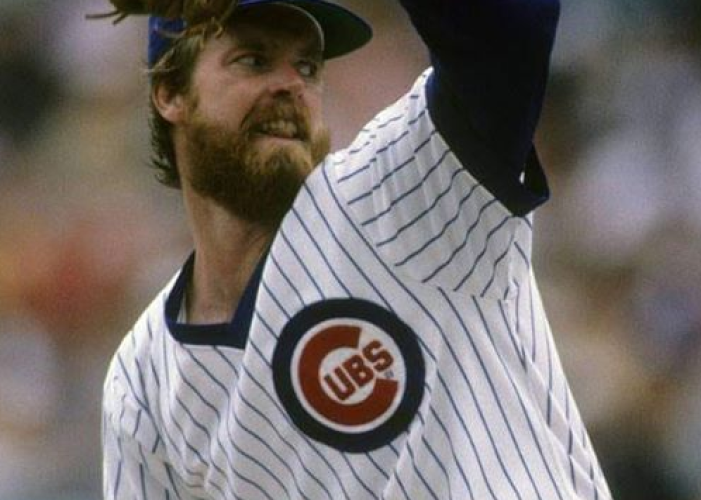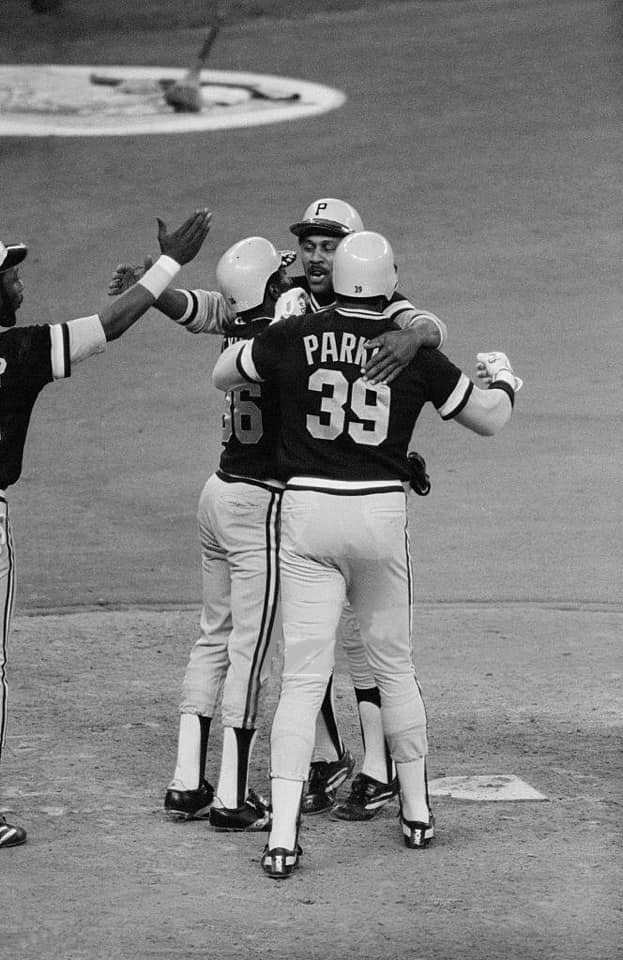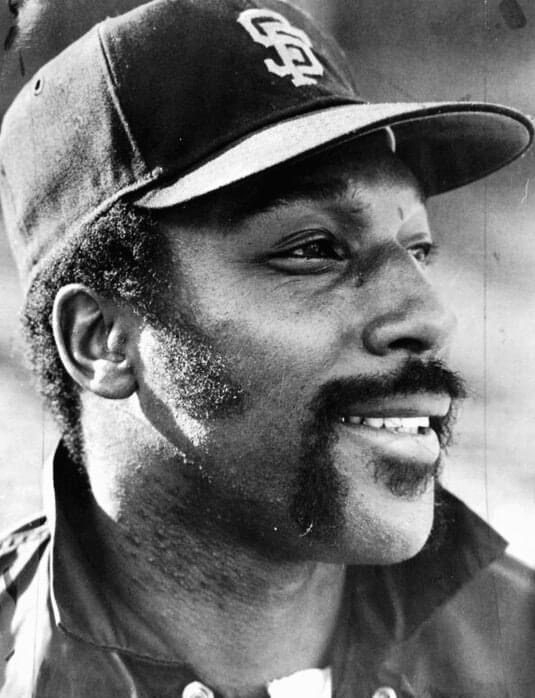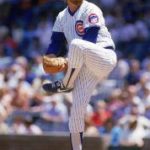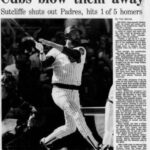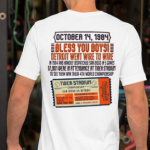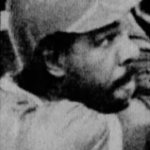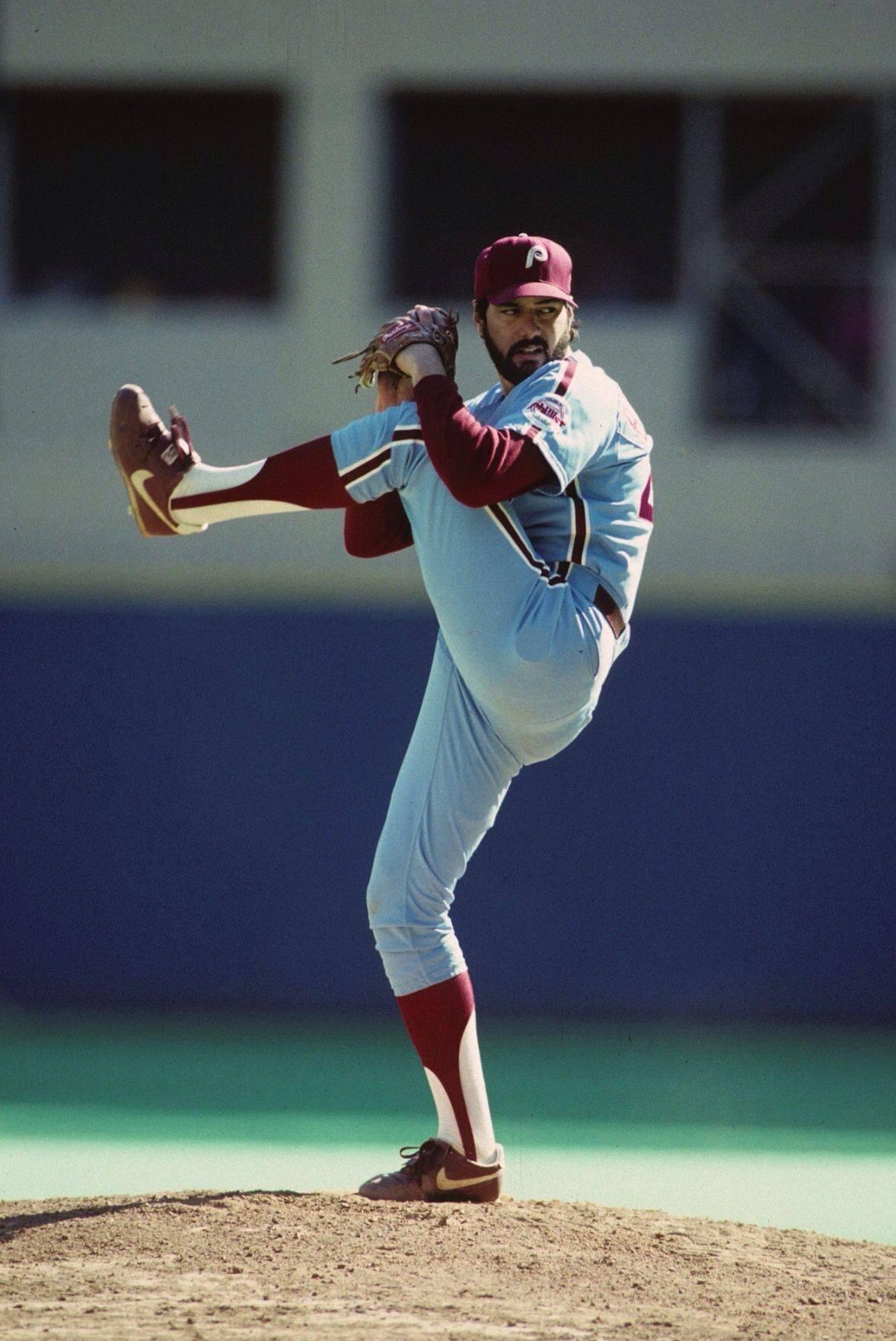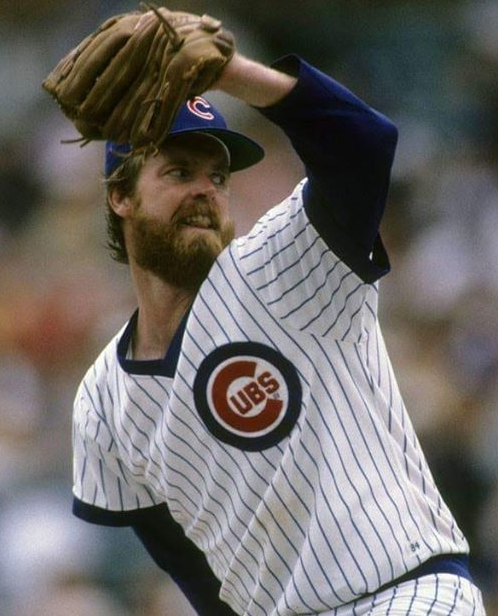[adrotate banner=”49″]
Rick Sutcliffe
Position: Pitcher
Bats: Left • Throws: Right
6-7, 215lb (201cm, 97kg)
Born: June 21, 1956 in Independence, MO
Draft: Drafted by the Los Angeles Dodgers in the 1st round (21st) of the 1974 MLB June Amateur Draft from Van Horn HS (Independence, MO).
High School: Van Horn HS (Independence, MO)
Debut: September 29, 1976 (11,452nd in MLB history)
vs. HOU 5.0 IP, 2 H, 3 SO, 1 BB, 0 ER
Last Game: July 22, 1994
vs. ATL 5.2 IP, 3 H, 2 SO, 4 BB, 1 ER, W
Full Name: Richard Lee Sutcliffe
Nicknames: Red Baron
Twitter: @Sut_ESPN
Nine Players Who Debuted in 1976
Andre Dawson
Dale Murphy
Willie Wilson
Garry Templeton
Dennis Martinez
Bruce Sutter
Rick Sutcliffe
Joaquin Andujar
Mark Fidrych
All-Time Teammate Team
Coming Soon
Vintage Baseball HOT ON EBAY
Card Collections ENDING SOON ON EBAY
MOST WANTED ROOKIE CARDS
VINTAGE SPORTS TICKETS
Baseball Hall of Famers
Notable Events and Chronology
Rick Sutcliffe
Richard Lee “Rick” Sutcliffe (born June 21, 1956 in Independence, Missouri), nicknamed “The Red Baron” for his red hair and beard.
A right-hander, Sutcliffe was a three-time All-Star. He won the National League Rookie of the Year award in 1979 and the National League Cy Young Award in 1984.
Rick Sutcliffe towered over batters in more ways than one, since he was 6 ft. 7 inches tall. He was a first-round draft pick by the Los Angeles Dodgers at age 18 in 1974. By 1976, he had pitched his first game in the big leagues (five innings, without giving up a run). Nine Other Players Who Debuted in 1976, Andre Dawson, Dale Murphy, Willie Wilson, Garry Templeton
,Dennis Martinez, Bruce Sutter, Rick Sutcliffe, Joaquin Andujar and Mark Fidrych.
The Dodgers of the time were a top team, having gone to the World Series in 1974, winning 92 games in 1976, and going to the Series again in 1977 and 1978. 1976 was the year in which Tommy Lasorda took over the managerial duties from Walter Alston. In spite of Sutcliffe’s successful first game in the majors, he didn’t pitch for the Dodgers in 1977, and in 1978 appeared in only two games (again giving up no runs).
1979 marked his emergence as a regular starting pitcher, and he was named Rookie of the Year, winning 17 games and losing 10. The team, however, fell below .500 for the season.
1980 and 1981 were tough years for Sutcliffe, as he lost his role as a regular starter, and his ERA’s plummeted. He and Lasorda did not get along. He did not appear in the 1981 World Series which the Dodgers won. Prior to the 1982 season he was traded to Cleveland.
Sutcliffe vs. Lasorda
With the Dodgers in 1981, Rick Sutcliffe was buried in the bullpen behind a talented starting rotation that consisted of Fernando Valenzuela, Burt Hooton, Jerry Reuss, and Bob Welch. In September, according to Sutcliffe, Dodgers’ manager Tommy Lasorda promised him a start. But instead, Sutcliffe saw Ted Power and Bobby Castillo get spot starts as the Dodgers prepped for the post-season.
“He had lied to me,” Sutcliffe told the Cubs’ team magazine in 1986.
“I asked why he had started Power and Castillo, and he said he wanted to give the younger pitchers a chance. But Power and Castillo were both older than I was!”
In a closed door meeting in Lasorda’s office, Sutcliffe confronted his manager.
“[He said to me] ‘You’re lucky to be in the big leagues. You can’t pitch in the big leagues.’
“That’s when I picked him up by his uniform collar,” Sutcliffe said, “I wasn’t exactly choking him, but I guess my hands were sort of around his neck – and I held him in the air and said ‘If you weren’t 50 years old, I’d kick your ass.'”
Needless to say, Sutcliffe’s days as a Dodger were over, and he was traded to Cleveland in December.
Despite Lasorda’s protests that he never said Sutcliffe couldn’t pitch in the big leagues, the two have rarely spoken since.
He was much happier in Cleveland, and won the ERA title. He was also fifth in the Cy Young Award voting. The following year, in 1983, he went 17-11, although his ERA fell off. Still, it was a notable accomplishment to win six games over .500 for a team that had a 70-92 record.
1984 started poorly, as he went 4-5 with an ERA of 5.15 during the first few weeks of the season. Then, magic happened. Cleveland traded him and other players to the Cubs for Joe Carter, Mel Hall, and some others. Sutcliffe began an almost perfect stretch with the Cubs, going 16-1 with an ERA of 2.69 in an extreme hitter’s park. The Cubs won their first division championship, and Sutcliffe won the Cy Young Award. Sutcliffe became a fixture on the Cubs scene, pitching for them through 1991, although he was never to have another year like 1984. He did, however, win 18 games in 1987 (leading the league in victories and finishing 2nd in the Cy Young Award voting), and in 1989 he won 16 and the Cubs again won the division. By 1989 his salary was one of the three highest in baseball.
Sutcliffe became a free agent in 1992, and spent two years with the Baltimore Orioles, winning 26 games total although his ERA was below the league average. He finished up his playing career with the St. Louis Cardinals.
He was an excellent hitter (for a pitcher), with a lifetime .181 batting average. Twice he hit .250, and once .247. In 1979 he drove in 17 runs, a higher total than teammate Von Joshua had, although Joshua appeared in 94 games.
Although not a strong candidate for the Hall of Fame, his credentials are consistent with the public’s perception during his career that he was a major star. He won 171 lifetime games with a winning percentage over .550. He pitched nearly 3,000 innings, and while his ERA appeared mediocre, much of his career was spent in Wrigley Field, a hitter’s park. He was a major factor in the league during many years of his career: in addition to his Cy Young year (1984), he was 2nd once in the Cy Young voting (1987), 5th another time (1982), and in yet another year was Rookie of the Year (1979). In still another year (1983) he was named to the All-Star team, and in yet another year (1992) he led the league in games started and was in the top ten in wins. He was the youngest player in the league in 1976 and one of the oldest in 1994.
The similarity scores method shows the most similar player as Dave Stewart, another major star who came up in the Dodger system at the same time as Sutcliffe.
Sutcliffe is credited with stealing home plate once, but it was really a botched pick off attempt of another baserunner. He holds the record for the most times facing Barry Bonds without letting up a home run. Bonds had 51 PA against Sutcliffe and batted .239/.280/.326.
Sutcliffe’s brother, Terry Sutcliffe, was a minor league pitcher in the Los Angeles Dodgers chain.
Broadcasting
After his retirement from baseball, Sutcliffe became a color commentator for the San Diego Padres on Channel 4 San Diego (1997–2004) and ESPN (1998–present), as well as a minor-league pitching coach in the San Diego Padres system for a couple of seasons. He also broadcasts the World Series and the ALCS for MLB International, where he is teamed with Dave O’Brien, his usual ESPN partner.
On March 13, 2008, Sutcliffe was diagnosed with “curable and maintainable” colon cancer. He underwent chemotherapy and radiation treatments in his hometown of Kansas City during the spring of 2008 and returned to work with ESPN on May 21, 2008. He continues to maintain a positive attitude and credits this to his faith in Jesus, strong family encouragement, incredible friends and immense support all over the world. As a result of his trials, he has shown great interest in motivational speaking about overcoming trials through your faith for groups such as Fellowship of Christian Athletes.
Channel 4 Incident
On May 10, 2006, Sutcliffe, while seemingly under the influence of alcohol, was invited into the Channel 4 San Diego broadcast booth during a game between the San Diego Padres and Milwaukee Brewers.
Craig Nichols, general manager of Channel 4 called the incident “embarrassing” for both the broadcasters and the viewers. He criticized Sutcliffe as having “used remarkably poor judgment.” On May 11, Sutcliffe issued an apology[5] through ESPN. In his statement, he denied having driven under the influence of alcohol during the evening, but neither directly confirmed nor denied that he had been inebriated at the time of his interview. He did, however, acknowledge that he had not been “in optimum condition to go on live television” and said that he regretted his “lapse in judgment” in having done so.
Sources:
BR Bullpen, Wikipedia and The Baseball Library
@ET-DC@eyJkeW5hbWljIjp0cnVlLCJjb250ZW50IjoicG9zdF90YWdzIiwic2V0dGluZ3MiOnsiYmVmb3JlIjoiTGVhcm4gTW9yZSBhYm91dCB0aGUgdGVhbXMsIHBsYXllcnMsIGJhbGwgcGFya3MgYW5kIGV2ZW50cyB0aGF0IGhhcHBlbmVkIG9uIHRoaXMgZGF0ZSBpbiBoaXN0b3J5IC0gLSAtIC0gLSAtIC0gIiwiYWZ0ZXIiOiIiLCJsaW5rX3RvX3Rlcm1fcGFnZSI6Im9uIiwic2VwYXJhdG9yIjoiIHwgIiwiY2F0ZWdvcnlfdHlwZSI6InBvc3RfdGFnIn19@
Vintage Baseball HOT ON EBAY
Card Collections ENDING SOON ON EBAY
MOST WANTED ROOKIE CARDS
VINTAGE SPORTS TICKETS
Baseball Hall of Famers
Factoids, Quotes, Milestones and Odd Facts
Coming soon
Other Resources & Links
Coming Soon
If you would like to add a link or add information for player pages, please contact us here.

